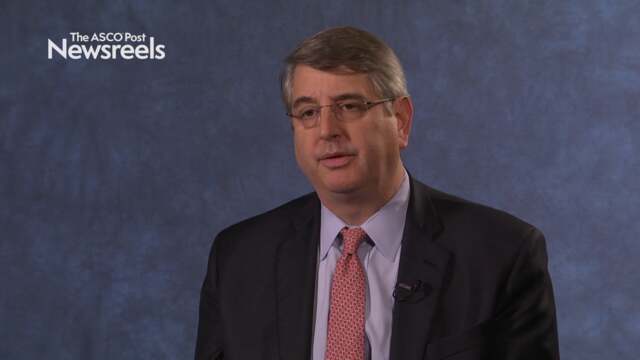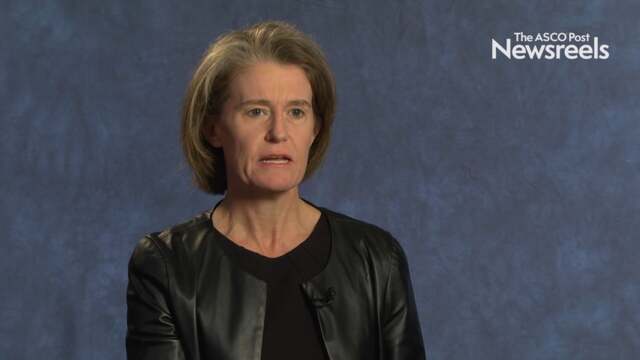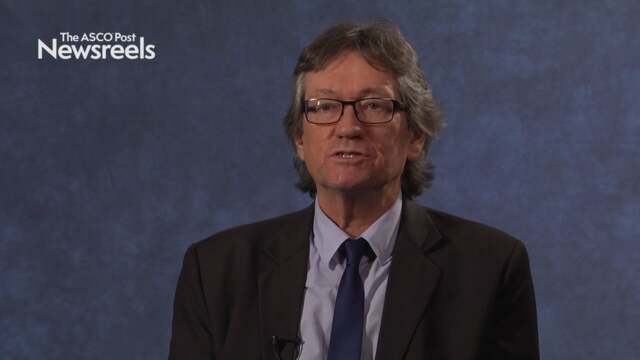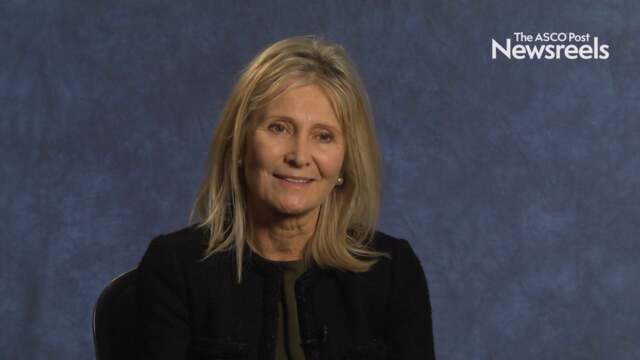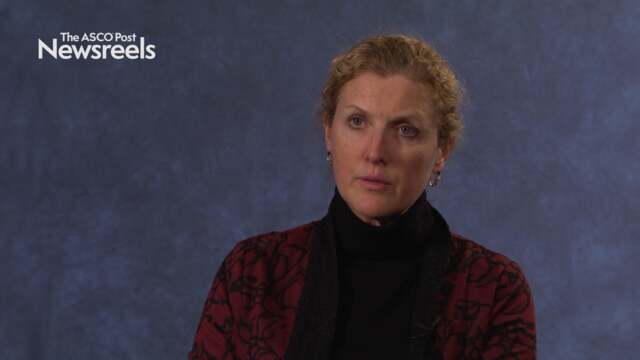Lee S. Schwartzberg, MD, on HR+ Breast Cancer: Treatment Trial Results
2017 San Antonio Breast Cancer Symposium
Lee S. Schwartzberg, MD, of the West Cancer Center, discusses phase II study findings evaluating exemestane with or without enzalutamide in patients with hormone receptor–positive breast cancer (Abstract GS4-07).
Harold J. Burstein, MD, PhD, of the Dana-Farber Cancer Institute, discusses study findings on a comparison of adjuvant tamoxifen plus ovarian function suppression vs tamoxifen in premenopausal women with hormone receptor–positive breast cancer (Abstract GS4-03).
Elizabeth A. Mittendorf, MD, PhD, of The University of Texas MD Anderson Cancer Center, discusses the growing role of immunotherapy in treating breast disease, the evidence of biomarkers that may be associated with response to therapy, and the opportunities to perform robust correlative studies.
Richard G. Gray, MSc, of the University of Oxford, discusses an Early Breast Cancer Trialists’ Collaborative Group meta-analysis of 21,000 women in 16 randomized trials, which showed that increasing the dose density of adjuvant chemotherapy by shortening intervals between courses or sequentially administering treatment significantly reduces disease recurrence and breast cancer mortality (Abstract GS1-01).
Silvia C. Formenti, MD, of Weill Cornell Medicine, discusses the high therapeutic potential of combining radiotherapy with immunotherapy and findings that show radiation dose and fractionation seem particularly relevant to the success of abscopal responses. The science has now matured to clinical translation.
Lisa A. Carey, MD, of the University of North Carolina, discusses the long-term follow-up of CALGB 40502/NCCTG N063H, a phase III study of weekly paclitaxel compared with weekly nanoparticle albumin bound nab-paclitaxel or ixabepilone with or without bevacizumab as first-line therapy for locally recurrent or metastatic breast cancer (Abstract GS3-06).
